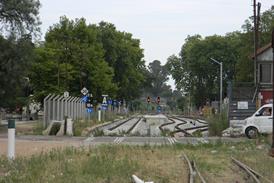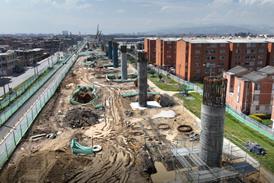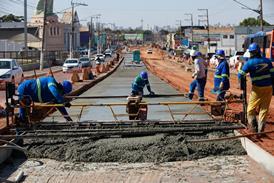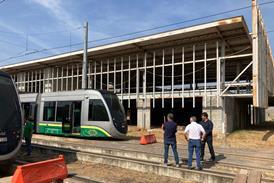ANOTHER ATTEMPT is to be made to move Aqaba Railway Corp into the private sector. An earlier effort to privatise ARC collapsed after an agreement had been signed for a consortium to take over the line in 1999. There were several reasons for this, according to Eng Laith Dababneh, General Manager of ARC and a Director in the Jordanian Ministry of Transport.
Under the original proposals, an EU-funded study carried out by Transurb Consult recommended that ARC be split into a government-owned property company and an operating company to be sold to the private sector. Consultants were chosen to provide technical, financial and legal advice, and 24 firms expressed interest. Of these, 19 prequalified and 16 of these purchased the Request for Tenders. Eight submitted technical bids in July 1998, and four of these groups then submitted financial offers. They included Raytheon, Bechtel, a group that included Wisconsin Central, and another including Petra Shipping & Navigation.
An agreement was signed on August 18 1999 with the Wisconsin Central group to set up Jordan Rail, and further progress was made with a lease deal later that year. However, in March 2001 an amendment was made to the lease deal that reflected several obstacles. One of these was that ARC employed a relatively large number of people in Ma’an where the railway was the only major organisation to offer employment. The King of Jordan had visited Ma’an and had undertaken to ensure tha no-one would lose their job or house.
Another difficulty was that the plan to build a new line to serve mines at Wadi II was not mature, and its cost had not been fixed, despite a year of discussions with potential investors. The problems led to the withdrawal of Norsk Hydro and other strategic shareholders from the bidding consortium, while in the meantime Wisconsin Central was sold to Canadian National, which had no desire to expand outside North America. All this led to the cancellation of the agreement with Jordan Rail.
In the meantime, ARC was suffering, with rolling stock and infrastructure deteriorating badly. The government then decided to make available US$5m to allow tenders for purchase of spare parts to be called, including traction motors for the diesel locomotive fleet. This had the desired effect, and whereas in April 2001 ARC managed to run only 35 trains, after a rapid rehabilitation programme it ran 148 trains in December that year. Tonnage rose from a meagre 45000 in April 2001 to 183000 in December. Further progress has since been made, and in the 12 months to December 2003 ARC expected total tonnage to reach 2·7million.
Dababneh said that rehabilitation would continue, and that a fresh privatisation proposal was being started. Aqaba Railway Company would be established as a government-owned company, and after some time the government would start to sell shares in the operator.
Projects to attract investors include the long-standing proposal to build a line to the phosphate deposits at Shediya; the infrastructure would be built to allow for the possibility of running trains of 1435mm gauge in the future.




















